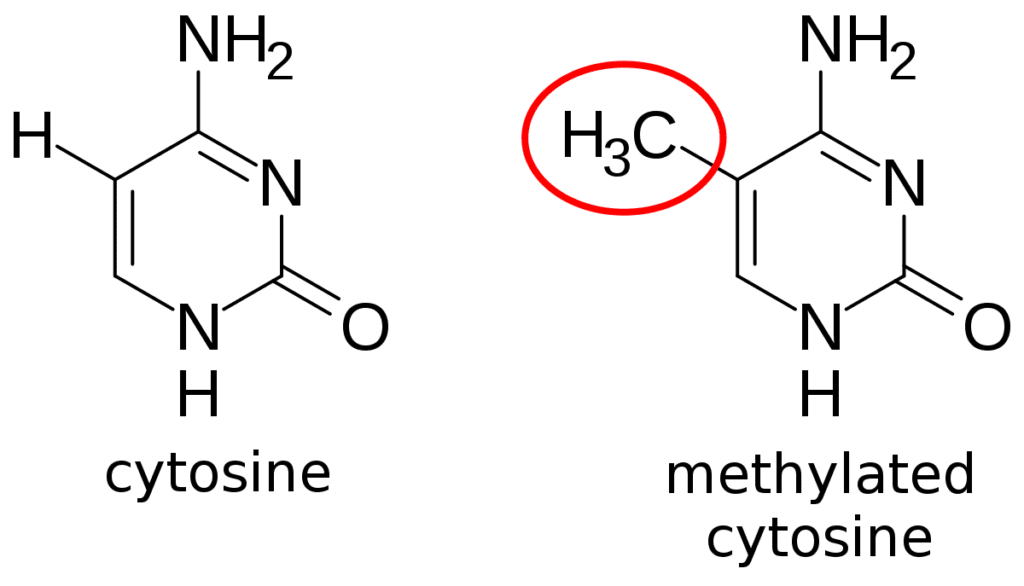Methylation: The Key to Optimal Health and Well-being
Methylation is a fundamental process that occurs in the body, involving the attachment of methyl groups to molecules. These methyl groups activate the molecules, allowing them to perform their functions effectively. Methylation is a continuous process that happens billions of times per second in the body and is essential for optimal body function.
Understanding the role of methylation in the body is crucial for comprehending its importance in health and wellness. Methylation is involved in various bodily processes, including DNA repair, detoxification, hormone production, mood regulation, and more. It plays a vital role in maintaining overall well-being.
For example, methylation is essential for DNA repair. DNA repair is a crucial process that ensures the integrity of our genetic material. Without proper DNA repair mechanisms, mutations can accumulate, leading to various diseases, including cancer. Methylation plays a key role in this process by activating enzymes responsible for repairing damaged DNA strands. By promoting efficient DNA repair, methylation helps to prevent the development of genetic mutations and subsequent health issues.
Another example of methylation’s importance can be seen in detoxification. Our bodies are constantly exposed to toxins and harmful substances. Methylation aids in the detoxification process by activating enzymes responsible for breaking down and eliminating these toxins from the body. Impaired methylation can hinder the detoxification process, leading to a buildup of toxins and potentially contributing to the development of chronic diseases.
Methylation and Its Importance in the Body
Although there are genetic defects related to methylation that can affect bodily processes, lifestyle, diet, and disease states are more significant factors in determining methylation issues than genetic tests. Testing homocysteine levels can provide valuable insights into methylation issues. Homocysteine is an amino acid that is affected by methylation and can serve as an indicator of methylation status.
Research shows that up to 40% of the population may have a genetic defect related to methylation, which can affect various bodily processes. However, it is important to note that genetic tests may not accurately indicate methylation issues, as lifestyle, diet, and disease states play a more significant role. Therefore, it is crucial to consider these factors when assessing an individual’s methylation status.
For example, lifestyle factors such as diet, exercise, stress, and toxin exposure significantly influence methylation. Nutritional deficiencies, especially in B vitamins, can also affect methylation. Therefore, adopting a wholesome and well-balanced lifestyle, along with good nutrition, is essential for supporting optimal methylation.
Moreover, disease states can impact methylation. Chronic inflammation, which is a hallmark of many diseases, can disrupt the methylation process and lead to undermethylation. By addressing the underlying disease and reducing inflammation, the methylation process can be restored, promoting better health outcomes.
Understanding Undermethylation and Its Impact on Health
Undermethylation refers to insufficient methylation activity in the body and can have a significant impact on health. It can lead to various symptoms, including fatigue, anxiety, depression, insomnia, allergies, and headaches. Furthermore, undermethylation increases the risk of developing osteoporosis, diabetes, cancer, birth defects, dementia, stroke, and cardiovascular disease. It is a complex issue that can have far-reaching consequences.
To understand the impact of undermethylation on mental health, let’s take the example of anxiety and depression. Methylation is involved in the production and regulation of neurotransmitters, chemicals that transmit signals in the brain. Neurotransmitters like serotonin and dopamine play a crucial role in mood regulation, and imbalances in these neurotransmitters can contribute to the development of anxiety and depression. Undermethylation can disrupt the production and regulation of these neurotransmitters, potentially leading to mood disorders.
Moreover, undermethylation can affect bone health. Methylation is involved in the production of collagen, a protein that forms the structural framework of bones. Impaired methylation can lead to decreased collagen production, which can weaken the bones and increase the risk of osteoporosis. By addressing undermethylation, bone health can be improved, reducing the risk of fractures and other bone-related issues.
Defects in the MTHFR enzyme, influenced by the MTHFR gene, can contribute to undermethylation. The MTHFR gene mutation affects the body’s ability to convert folic acid into its active form, folate. This can hinder the methylation process and lead to undermethylation-related health issues.
Research suggests that up to 50% of the population may have a genetic variation in the MTHFR gene. This variation can impact folate metabolism and subsequently affect methylation. Individuals with the MTHFR gene mutation may experience symptoms such as fertility issues, miscarriage, depression, anxiety, neural tube defects, and mental illness. It is important to consider genetic factors like the MTHFR gene when assessing methylation status and addressing related health concerns.
Functional Testing: Assessing Methylation Status
Functional testing is a valuable tool for assessing methylation status and providing more comprehensive insights compared to genetic testing alone. It involves personalized medicine and helps identify individual methylation patterns, guiding interventions for optimizing health. By understanding an individual’s unique methylation status, healthcare practitioners can tailor treatment plans to address specific needs.
Functional testing can include various assessments, such as measuring homocysteine levels, analyzing genetic variations, and evaluating biomarkers related to methylation. These tests provide a more comprehensive picture of an individual’s methylation status and can help identify specific areas of concern. By utilizing functional testing, healthcare practitioners can develop personalized interventions and monitor progress over time.
For example, measuring homocysteine levels can provide insights into an individual’s methylation status. Elevated homocysteine levels may indicate undermethylation, while low levels may suggest overmethylation. This information can guide treatment decisions, such as adjusting nutrient supplementation or lifestyle modifications, to optimize methylation.
Genetic testing can also be a valuable tool in assessing methylation status. Analyzing specific genetic variations, such as those in the MTHFR gene, can provide insights into an individual’s methylation capabilities. By identifying these genetic variations, healthcare practitioners can develop personalized treatment plans that target the specific needs of each individual.
Factors Affecting Methylation: Lifestyle and Nutrition
Various factors can impact methylation, including lifestyle and nutrition. Lifestyle factors such as diet, exercise, stress, and toxin exposure significantly influence methylation. Nutritional deficiencies, particularly in B vitamins, can also affect methylation. Therefore, adopting a wholesome and well-balanced lifestyle, along with good nutrition, is essential for supporting optimal methylation.
For instance, research suggests that folate intake plays a crucial role in methylation. Folate, a B vitamin, is essential for methylation as it serves as a methyl donor in the process. Inadequate folate intake can lead to impaired methylation and an increased risk of health issues. On the other hand, consuming a diet rich in folate can support optimal methylation and overall well-being. Foods such as leafy greens, legumes, and fortified grains are excellent sources of folate.
Additionally, certain lifestyle factors can impact methylation. Chronic stress, for example, can disrupt the methylation process by altering the activity of enzymes involved. Stress hormones, such as cortisol, can influence the expression of genes involved in methylation, leading to imbalances. By managing stress through relaxation techniques, exercise, and self-care practices, the negative impact on methylation can be minimized.
Furthermore, toxin exposure can affect methylation. Toxins present in the environment, such as heavy metals and pollutants, can interfere with the methylation process. By reducing toxin exposure and adopting toxin avoidance strategies, individuals can support their methylation and overall health.
The Role of Nutrigenomics in Optimizing Methylation
Nutrigenomics, which studies the interaction between nutrition and genes, provides valuable insights into individual methylation needs. It recognizes that each person has a unique genetic makeup and nutritional requirements. Personalized nutrition is crucial for optimizing methylation and overall health. By understanding an individual’s genetic variations and nutritional needs, tailored approaches can be developed to support optimal methylation.
An example of the role of nutrigenomics in optimizing methylation is the identification of specific genetic variations that affect nutrient metabolism. For instance, some individuals may have genetic variations that impair their ability to convert dietary folate into its active form, 5-methyltetrahydrofolate (5-MTHF). In these cases, supplementing with 5-MTHF directly can bypass the genetic defect and support optimal methylation.
Moreover, nutrigenomics can help identify specific dietary interventions that can optimize methylation based on an individual’s genetic makeup. For example, individuals with genetic variations that affect the metabolism of certain nutrients may benefit from higher dietary intake or targeted supplementation of those nutrients to support methylation. By understanding an individual’s unique genetic profile, personalized recommendations can be made to support optimal methylation and overall health.
Functional Medicine Approach to Methylation: A Comprehensive Assessment
Functional medicine takes a holistic approach to address methylation issues. It involves a comprehensive health assessment to identify underlying factors that may be affecting methylation. Biomarker testing is used to evaluate an individual’s methylation status, providing crucial information to guide personalized treatment plans. This approach recognizes the interconnectedness of various bodily systems and aims to address the root causes of methylation issues.
By taking a comprehensive approach to methylation, functional medicine practitioners can identify and address the underlying factors contributing to methylation issues. For example, if an individual is experiencing undermethylation symptoms such as fatigue and mood disorders, a functional medicine practitioner would assess various factors that could be affecting methylation, such as nutrient deficiencies, chronic inflammation, or toxin exposure. By addressing these underlying factors, methylation can be optimized, leading to improved health outcomes.
Biomarker testing is an essential component of a functional medicine approach to methylation. By evaluating specific biomarkers related to methylation, such as homocysteine levels or DNA methylation patterns, healthcare practitioners can gain valuable insights into an individual’s methylation status and identify areas of concern. This information guides the development of personalized treatment plans, which may include targeted nutrient supplementation, lifestyle modifications, and other interventions to optimize methylation.
Natural Strategies for Supporting Methylation
There are natural ways to support methylation. Dietary changes and supplementation play a crucial role in providing the necessary nutrients for optimal methylation. Active forms of B vitamins, folate, and other nutrients are essential for supporting methylation. Additionally, lifestyle modifications, stress management, toxin avoidance, and good nutrition contribute to overall methylation support.
For example, research has shown that certain nutrients are particularly important for supporting methylation. Coenzyme Q10, phosphatidylcholine, folinic acid or L-methylfolate, and vitamins B-6 and B-12 are among the nutrients that can assist in undermethylation. These nutrients can support the methylation process by providing the necessary building blocks and cofactors.
In addition to nutrient supplementation, lifestyle modifications can also have a positive impact on methylation. Stress management techniques, such as mindfulness meditation, yoga, and deep breathing exercises, can help reduce stress levels and support optimal methylation. By incorporating these stress management techniques into daily life, individuals can enhance their methylation and overall health.
Furthermore, toxin avoidance is crucial for supporting methylation. Toxins present in the environment, such as pesticides and heavy metals, can interfere with the methylation process. By reducing exposure to these toxins through the use of organic products, and water filtration systems, and avoiding polluted environments, individuals can support their methylation and overall well-being.
Empowering Health through Personalized Methylation Care
Understanding individual methylation patterns is key to optimizing health and well-being. Seeking personalized approaches, such as those offered by Autumn Falk, can provide valuable guidance and support for addressing methylation issues. Autumn Falk offers natural health services, guidance to functional testing (through nutrisearch that offers Integrative Pathology Services to various health practitioners in NZ) and personalized natural treatment protocols to support methylation and overall well-being. By working with a healthcare practitioner who specializes in methylation, individuals can receive personalized care tailored to their specific needs.
Autumn Falk is a trained naturopath who offers natural health services, naturopathy, medical herbalism, and the healing arts of bodywork. Autumn Falk, a Medical Herbalist, Naturopath, and Shiatsu Practitioner, provides personalized care focused on physical health as well as emotional and spiritual well-being. Clients have praised Autumn for her ability to put extra care and afford to find the cause and address her client’s health issues with individualized client care.
In conclusion, methylation is a crucial process in the body that affects various bodily functions and overall health. Understanding the role of methylation, assessing methylation status, and addressing factors that affect methylation is essential for optimizing health and well-being. By adopting a functional medicine approach, incorporating natural strategies, and seeking personalized care, individuals can empower their health and support optimal methylation. For more information and to book an appointment with Autumn.








